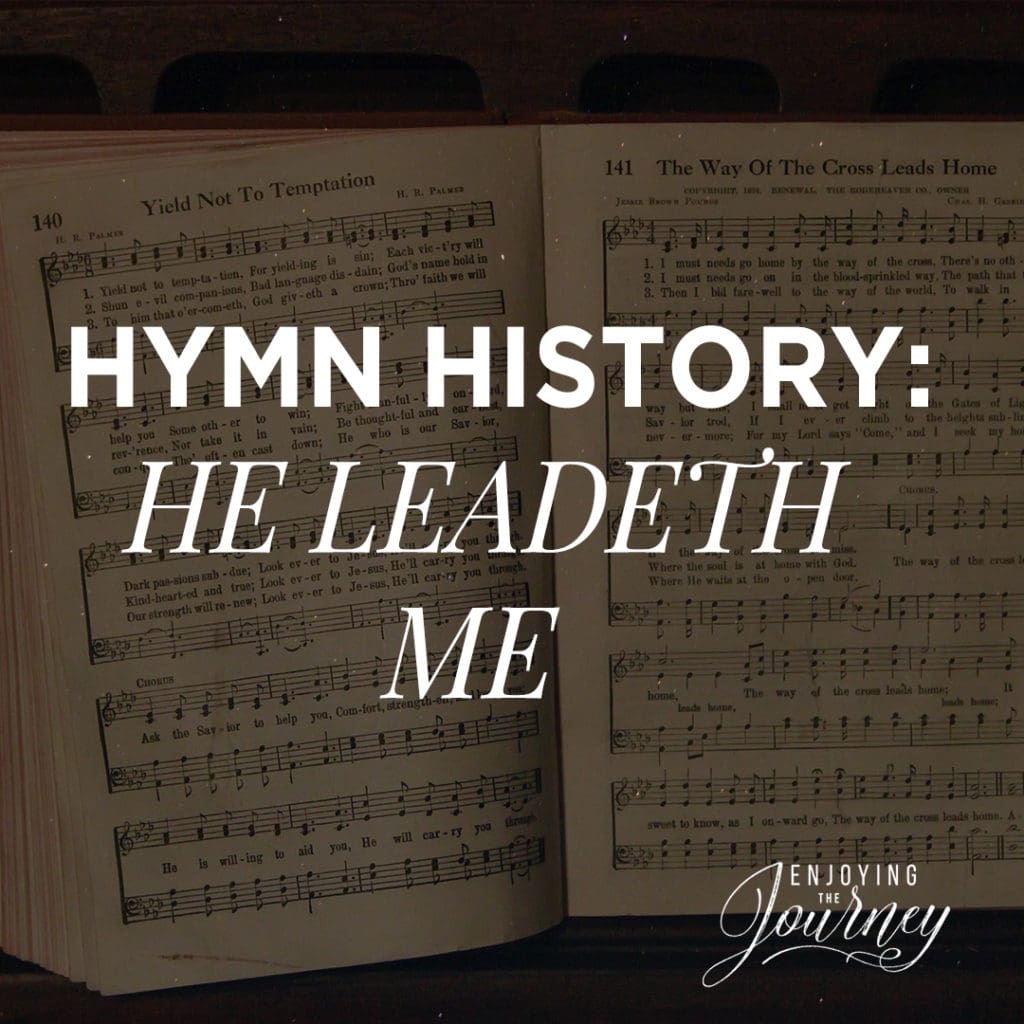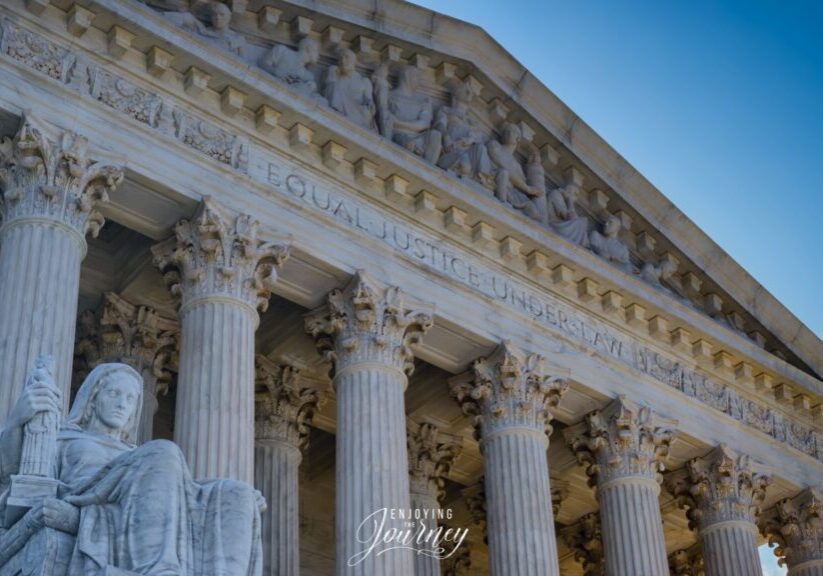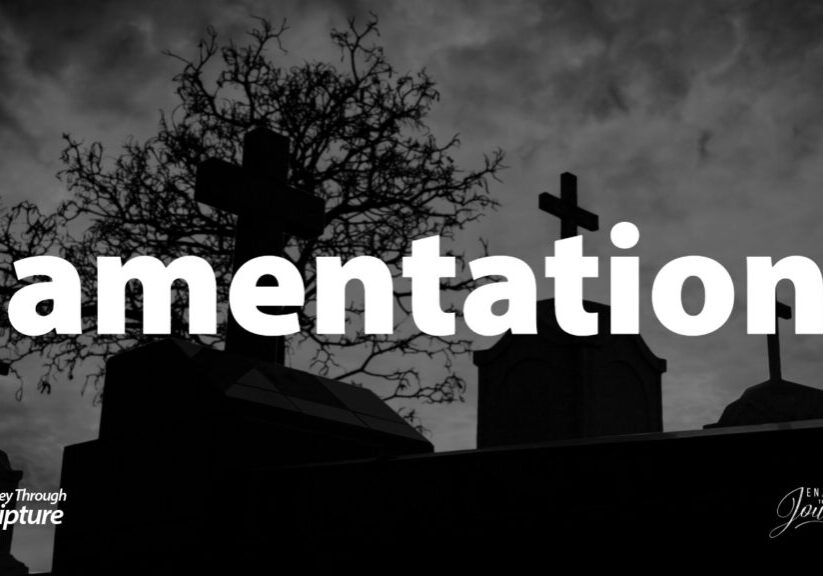
“The LORD is my shepherd; I shall not want. He maketh me to lie down in green pastures: he leadeth me beside the still waters. He restoreth my soul: he leadeth me in the paths of righteousness for his name’s sake.“ – Psalm 23:1-3
We are thrilled to share a series of brief accounts of how some of the great hymns of our faith were written. Each synopsis has been compiled through the research of Jerry Vargo and is shared by permission. It is our hope that these stories will be a help and encouragement to your Christian walk. This week we read the full and powerful story behind the stirring hymn, “He Leadeth Me.”
______________________________________________________________
In 1926, the old building of the historic First Baptist Church of Philadelphia, Pennsylvania was being torn down to make way for a new office building. The building was built in 1853 and had served the church for 73 years. The church sold the old building and built a new building a few blocks away. The United Gas Improvement Company purchased the old building and planned to tear it down to make way for a new high rise office building for the company.
On the morning that the demolition was to begin, an old man was standing across the street from the old church building watching carefully as the demolition crew set up cranes with giant wrecking balls. The supervisor of the wrecking company noticed the old man and walked over to him. The supervisor asked him if he was a member of the church. The old man replied, “Yes, I am a member of the church. There are a lot of memories I have of that old building. You know, there is a lot of history being torn down.” The supervisor asked the old man to tell him what historical significance he was talking about. The old man told the story to the supervisor.
On Wednesday night, March 26, 1862, Dr. Joseph Henry Gilmore, a young 28 year old preacher, was invited to speak at the First Baptist Church. He was filling the pulpit for the pastor, who was out of town that night. Those were dark days in American history – the Civil War was still raging. There was concern on the minds of most Americans as family members and friends were fighting in the war.
Dr. Gilmore focused his message on the thought He leadeth me based on the 23rd Psalm. Dr. Gilmore said, “I set out to give the people an exposition of the Twenty-third Psalm. I had given this exposition on three or four other occasions; but this time I did not get beyond the words ‘He leadeth me.’ So greatly impressed was I with the blessedness of divine guidance that I made this my theme.” He later felt that the dark days of the Civil War may have subconsciously led him to focus on God’s leadership. After the service Dr. Gilmore and his wife were invited to Deacon Watson’s home for a time of fellowship and refreshment. Dr. Gilmore sat at the table of the Watson’s home enjoying refreshments and conversation but kept thinking about what he had just preached – He leadeth me. While others were talking, he quietly sat in his chair and took out a piece of paper, wrote all the words to the hymn He Leadeth Me, and handed the paper to his wife. He did not think about them again.
Mrs. Gilmore, without the knowledge of her husband, sent the poem to a weekly Christian magazine in Boston called The Watchman and the Reflector. Hymn writer William Bradbury, who owned his own music company, saw the words in the magazine and wrote music for the poem. This became known as the hymn He Leadeth Me.
Three years later, having pastored for some time in New Hampshire, Henry was invited to preach a trial sermon at the Second Baptist Church in Rochester. “I picked up a church hymnal to see what songs they sang and was surprised to have the book fall open to the very song I had written three years earlier,” he wrote.
“When I returned home, I related this experience to my wife. ‘I do not understand it,’ I said. ‘My words had been set to music by Dr. William B. Bradbury; yet I had not given the words to anybody.’ My wife smiled and said, ‘I can explain it, Joseph. I felt that the words would bless the hearts of people in these troublesome times; so I sent the poem to The Watchman and Reflector. I am glad to know that they have printed it.'”
When the old man finished telling this story to the wrecking crew supervisor, the supervisor was so impressed that he told the story to the new owners of the site – the United Gas and Improvement Company. The directors of the gas company were also moved by the story, they had a bronze plaque installed as a cornerstone on the new building they built on the site of the old First Baptist Church which read:
|
The United Gas and Improvement Company’s building has been torn down, but the plaque is preserved and is on display at the Philadelphia Historical Commission.
1. He leadeth me: O blessed thought!
O words with heavenly comfort fraught!
Whate’er I do, where’er I be,
still ’tis God’s hand that leadeth me.
Refrain:
He leadeth me, he leadeth me;
by his own hand he leadeth me:
his faithful follower I would be,
for by his hand he leadeth me.
2. Sometimes mid scenes of deepest gloom,
sometimes where Eden’s flowers bloom,
by waters calm, o’er troubled sea,
still ’tis God’s hand that leadeth me. (Refrain)
3. Lord, I would clasp thy hand in mine,
nor ever murmur nor repine;
content, whatever lot I see,
since ’tis my God that leadeth me. (Refrain)
4. And when my task on earth is done,
when, by thy grace, the victory’s won,
e’en death’s cold wave I will not flee,
since God through Jordan leadeth me. (Refrain)







This songs has been a great encoragement to me through out the years to a point where I tell my family and friends that it should be sung at my funeral. I thank God for Dr. Gilmore for using him to pass on this words of comfort to the world.
It is a beautiful hymn!
I feel the same. It will be the opening hymn at my funeral.
This song has been a cornerstone of my 97year old Mother, at whose funeral I want it to be sung as a testimony to her life in Christ. She will be 98 in May.
A very encouraging hymn for the Christian pilgrim.